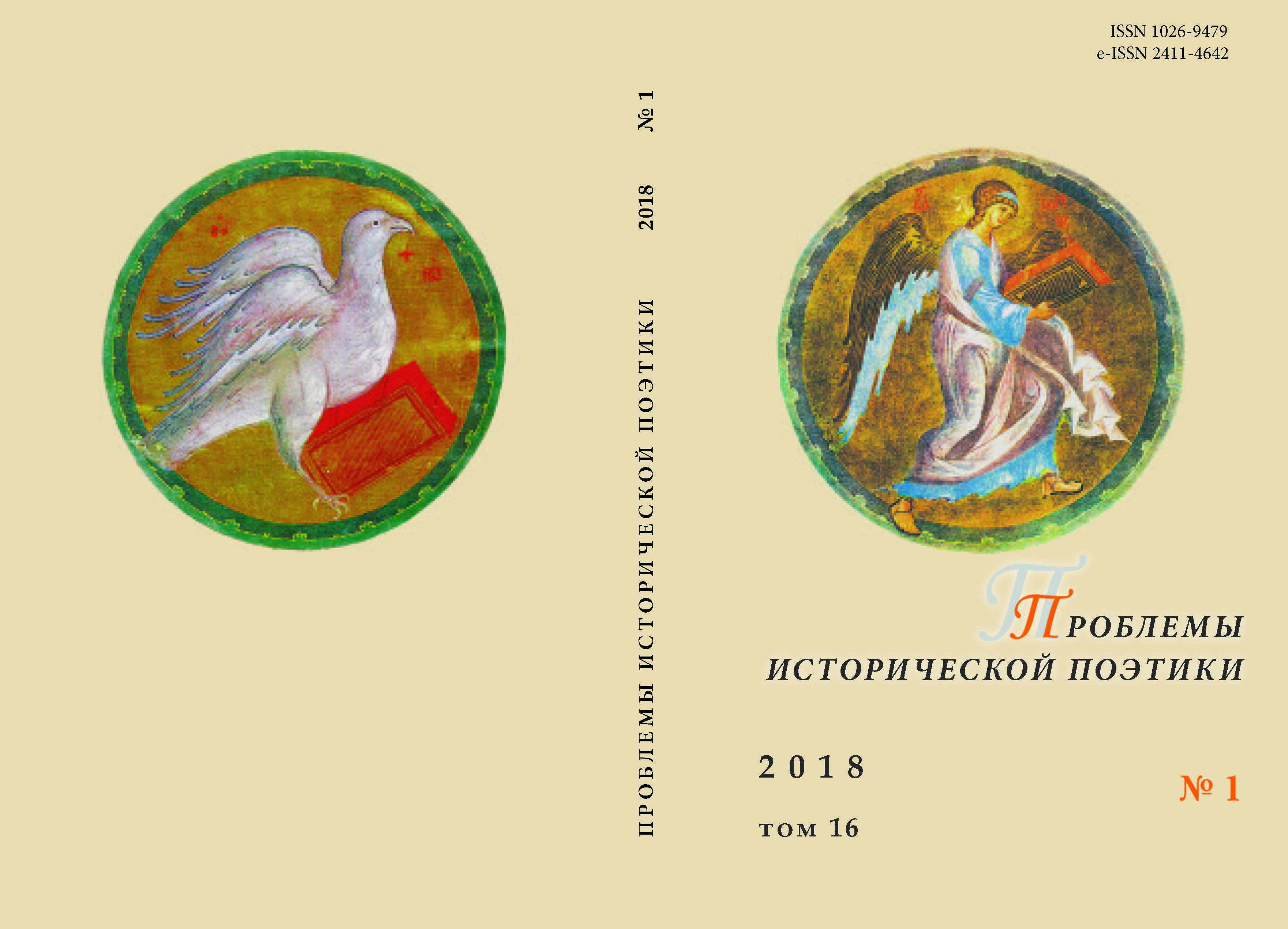АВТОР И ГЕРОЙ В ПОЭМЕ А. К. ТОЛСТОГО «ИОАНН ДАМАСКИН»
THE AUTHOR AND THE HERO OF THE POEM BY A. K. TOLSTOY “JOHN OF DAMASCUS”
Author(s): Tatiana FedoseevaSubject(s): Language and Literature Studies, Literary Texts, Library and Information Science, Fiction, Studies of Literature, Russian Literature, Philology
Published by: Петрозаводский государственный университет
Keywords: A. K. Tolstoy; “John of Damascus”; worldview position; creative consciousness; literary text and pretext; correspondence of A. Tolstoy and Ya. Polonsky; author; hero; value-based world of the writing;
Summary/Abstract: A. K. Tolstoy is a poet of the realistic epoch who kept a romantic approach to reality. The poem “John of Damascus” holds a specific place in the poet’s creative body of work representing the writer’s worldview and his aesthetic position. The subjective and objective world of the writing is under investigation in terms of Bakhtin’s theory and modern historical poetics. The article brings to light the specificity of speech organization of the text, narration functioning, dialogue and monologue. While studying the poem the author appeals to the hagiographic texts and funeral canticles by the Reverend that allow precising the ties between the image of John and his prototype. He also points out the meaning of the closing episode of the hagiography of the Holy Man for the poem’s storyline, and the role of the romantic motif of the detachment in the depiction of the hero. The hero’s dialectic image in the poem is defined as the one that traces back to the image of the Reverend John of Damascus and remains under the impact of the image of the author himself. An inner nature of the hero’s image is seen as a juxtaposition of the idea of the superior Divine office, deriving from the historical prototype, and the author’s romantic aspiration for absolute freedom in creative work. The violation of an aesthetic border of the hero’s objectivization is achieved due to the subjectiveness of the writer. The lyric monologues and fragments of the improper and direct speech constituting the poem objectify the hero’s image. Through the expressiveness of the latter the author’s subjectiveness is traced. The author and the hero are thought as the images that possess subjectiveness and objectified at the same time in the world. The study of the nature of subjective and objective relations in the poem gives an access to the value-based level of its content. The poem “John of Damascus” presents parallel ways of searching for truth by two poets — a theologian and an artist. The first one comes to the ideal of a humbled man, whilst the other one to the idea of the assertion of man’s dignity in front of God. The value-based level of the poem’s content going back to orthodox understanding of the historical prototype, the hero’s and author’s images, defines semantic wholeness of the poem.
Journal: Проблемы исторической поэтики
- Issue Year: 16/2018
- Issue No: 1
- Page Range: 119-139
- Page Count: 21
- Language: Russian

